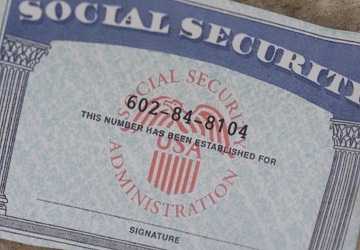10 Simple Ways to Protect Your Privacy in the Digital Age
How much of your personal data can be used in the digital realm? There are concerns about how much personal information is available to businesses and individuals.
Your email address, phone number, and social security number are all valuable assets, with potential value to both legitimate companies and malicious individuals looking to take advantage of them. To protect your privacy, it is important to take proactive steps.
In this blog post, we'll examine ten simple ways to protect your privacy and keep your personal information safe in the digital realm.
Disadvantages of Ignoring Privacy
Before we dive into solutions, let's address the potential risks posed by ignoring privacy. Here are the disadvantages you may experience:
·Identity Theft: Sharing too much personal information online increases the risk of identity theft. Scammers can use your information to open credit accounts or engage in other illegal activities, causing financial and reputational damage.
·Targeted Advertising: Businesses use their online activities and personal information to deliver targeted advertising. While this may seem harmless, it can compromise your privacy and flood you with intrusive ads.
·Data Breach: If you do not protect your personal information, you are vulnerable to a data breach. If your data falls into the wrong hands, it could be sold on the dark web or used for nefarious purposes.
·Social Engineering Attacks: Providing sensitive information, such as your social security number or date of birth, increases the risk of becoming a victim of a social engineering attack. Scammers can use this information to manipulate you and trick you into revealing more confidential information.
·Intrusive Tracking: Many websites and ad networks track your online activity and collect data about your preferences, purchases, and more. This widespread tracking puts your privacy at risk and can lead to unwanted surveillance.
10 Ways to Protect Your Privacy
Now that we understand the potential risks, let's explore ten effective ways to protect your privacy in the digital age.
1. Protect your Social Security Number
Your Social Security Number is an important identifier that should be protected. Only share it with trusted entities that need it for legitimate purposes, such as B. Banks or credit bureaus.
Avoid revealing the last four digits unless necessary, as this can help identity thieves guess the full number.

2. Back Up Your Hardware
Make sure your computer and mobile devices are protected with a strong password or password. Implementing these security measures is critical to preventing unauthorized access should your valuable information be stolen or lost.
Also, it is highly recommended to install reputable anti-malware software that can provide strong protection against malicious cyber threats to keep your device safe.
3. Minimize Social Media Profile Information
Your social media profiles are treasure troves of personal information. By limiting the information you share, you reduce the risk of that information falling into the wrong hands.
Only share necessary information with people you trust, and avoid revealing sensitive information, such as your date of birth, email address, and phone number.
4. Enable Private Browsing
Your web browser's private browsing mode provides an extra layer of privacy by deleting cookies, temporary Internet files, and browsing history after you end your session. This measure ensures that companies cannot track your online activity or display personalized advertisements.
If you surf the Internet incognito and want to protect your IP address, you can opt for a web proxy, a virtual private network (VPN) or the Tor network, among others.
5. Implement Two-Factor Authentication
Enhance the security of important accounts by enabling two-factor authentication (2FA). To implement 2FA, you need to provide a unique code, which is usually sent to your mobile device along with your password.
Even if someone manages to get your password by preventing unauthorized access, this extra layer of protection can greatly increase the security of your account.
6. Avoid Sharing Zip Codes With Credit Card Purchases
You should not enter your zip code when purchasing with a credit card unless absolutely necessary for the transaction.
Companies often use this information to determine other information about you, such as B. your address, phone number, and email address, which may compromise your privacy.

7. Set Name Google Notification
Monitoring your online presence is critical to addressing any reputation or privacy concerns. Set up Google Alerts using your name as a search term to be notified when you are mentioned online.
This keeps you informed and allows you to take appropriate action if necessary.
8. Use a Password Library
Managing multiple passwords can be challenging, but reusing them puts your accounts at risk. To increase the security of your online accounts, it is recommended to use a password vault such as LastPass.
A password manager has the advantage of creating strong and unique passwords for any online service and securely storing your login information.
Plus, they come with the handy feature of autofilling your credentials, ensuring a seamless and secure experience across all your accounts.
9. Choose Cash Payment
Since credit card companies often sell purchase data to advertisers, your privacy may be at risk. Consider paying cash for some transactions to avoid leaving a digital trail with your purchases.
This helps keep it private and prevents advertisers from learning about your buying habits.
10. Maintain Social Network Privacy
It is highly recommended that you take the time to thoroughly review and adjust the privacy settings of your social media accounts.
This proactive step allows you to maintain control over the visibility of your posts and activity, ensuring the level of privacy you desire.
Limit your content to trusted friends and acquaintances, and ensure that strangers cannot access your personal information or track your online behavior.
Diploma
In an age when personal information is precious, protecting your privacy has never been more important. By implementing these ten simple steps, you can control your digital footprint and protect your sensitive data from the wrong hands.
Remember that privacy is a fundamental right and it is your responsibility to actively protect it in the digital age. Follow these guidelines and stay vigilant and vigilant for a safer online experience.
Related Posts
- 10 Futuristic Smart Home Devices to Revolutionize Your Daily Living in 2023
- 8 Best Home Security Systems for Peace of Mind
- 6 Common Smartphone Issues and How to Fix Them
- 7 Ways to Free Up Space on Your Overloaded Computer
- The Path Ahead for Renewable Energy Technology
- How to adjust smartphone settings